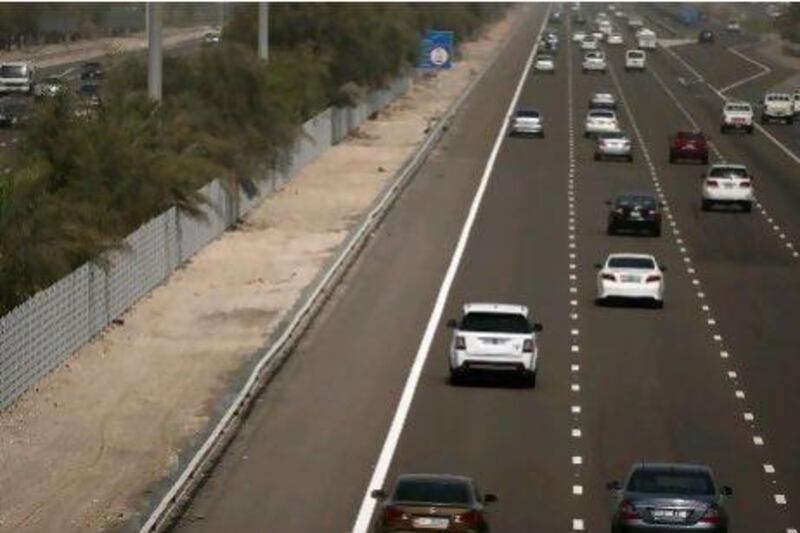The gruelling commute between Abu Dhabi and Dubai it set to become more bearable, at least on the pocket, as one car rental company weighs a new scheme designed to cut the cost of leasing.
Autorent, a car hire firm based in Oman, is considering launching a scheme in the UAE to reduce the cost of leasing a car to as little as Dh600 (US$163.35) a month.
The company recently rolled out a scheme offering anyone hiring a car for up to a week to pay a fixed fee of Dh70 and then 9 fils for every kilometre travelled.
Autorent is now considering extending this scheme to drivers who want to lease on a rolling monthly basis.
"We are looking at a usage-based rental for monthly leases," said Chandra Mouli, the senior general manager for Autorent in the UAE. "What we are thinking is that we could offer different monthly leases for different customers."
The company has not yet decided what price it will charge per kilometre for customers on a monthly leasing plan, but Mr Mouli said it would "significantly" reduce the cost of commuting.
At 9 fils per kilometre, a driver could commute everyday in a mid-sized vehicle between the UAE's two biggest cities for about Dh600 a month.
This is about a third of the average price of a saloon car on an average current monthly rental plan.
"We are working out some kind of vehicle GPS tracking system so that we can get the mileage for the car each month," said Mr Mouli.
The cost of installing the equipment is about Dh2,000 per car and the company will trial the system for a few months in its staff cars.
In the meantime, Autorent plans to get feedback from customers about whether they would sign up for the scheme and if they felt the tracking system was too intrusive.
"People might not want to us know where they are going and what they are doing," said Mr Mouli. "But conceptually, we are very clear that this scheme is what we want to offer, it's not there in the rental space at the moment."
He said such a pay-as-you-drive scheme would eat into overall margins, but hoped that would be partly offset by increased volumes as customers signed up.
Rahul Singh, the general manager for Thrifty Car Rental UAE, said he would need to see firm numbers on the rental scheme before being able to calculate the cost, but he expected commuters driving long distances to be attracted by the Autorent scheme.
Because the drivers are commuting long distances, the end-value of the car goes down and the maintenance costs go up, thus increasing costs for Autorent, he said.
"We work on averages. We might have a few cars, 5 to 10 per cent, where the mileage exceeds the normal average mileage," said Mr Singh. "But we don't have an issue because 90 per cent are in the limits."
Autorent has a number of its own workshops in the country Mr Mouli hopes will keep maintenance costs low and he also intends to shut its sales shops, with everything paid for and processed online.
"Gone are the days where you need to have a shop where people rent a car and go," he said. Autorent leases more than 3,000 cars in Oman, Saudi Arabia and the UAE.





